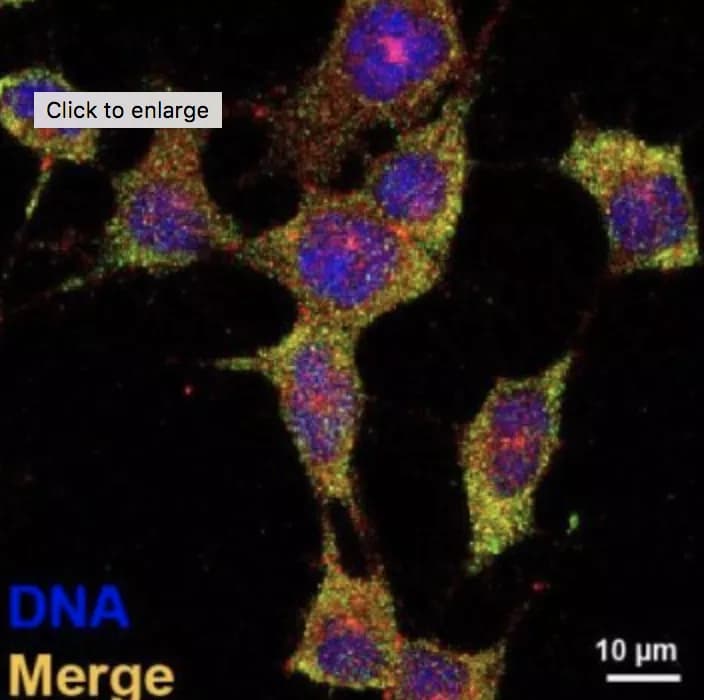
Gene Associated With Schizophrenia Risk Regulates Early Brain Development
A gene associated with the risk of schizophrenia regulates critical components of early brain development, according to a new study led by researchers from Penn State University. The gene is involved in the translation of proteins from RNA and in the proliferation and migration of neurons in the brain. Understanding the function of this gene -- described this month in journal Molecular Psychiatry -- could lead to more effective treatments for schizophrenia.
"A recent study identified over 100 genes associated with schizophrenia risk, but their functions are largely unknown," said Yingwei Mao, associate professor of biology at Penn State and lead author of the study. "We investigated one of these genes that is known to be significantly associated with schizophrenia: ZNF804A. In this study, we provide molecular evidence showing that ZNF804A could contribute to psychiatric disorders like schizophrenia."
Schizophrenia is a severe mental disorder that affects approximately 1 percent of the world's population. Treatments tend to focus on alleviating symptoms, which include delusions and hallucinations, rather than addressing the underlying causes. Like many human diseases, schizophrenia is complex, and no single genetic or environmental factor has been identified as the cause of the disease.
"We found that ZNF804A affects brain structure and function during early fetal development," said Mao. "This supports the idea that changes early in neurodevelopment can produce effects that may not be triggered until adulthood. Although schizophrenia symptoms typically appear in late adolescence or early adulthood, genetic mutations affecting early neurodevelopment could embed risk for future behavioral changes."
The research team identified genes that interact with ZNF804A, which include 9 genes involved in controlling the translation of RNA to proteins. This suggests an influential role of ZNF804A in this important decoding process. Using a mouse model, the team also demonstrated that two processes during neurodevelopment are regulated by the gene: proliferation -- the replication of neuronal stem cells that have the potential to become multiple different kinds of cells, including neurons -- and migration -- the movement of neurons to specific locations in the brain during development.
"ZNF804A is critical to regulating proliferation and migration," said Mao. "Disturbances to these processes may cause neuronal stem cells to develop into different types of cells or may cause neurons to migrate to different locations in the brain, changing neuronal circuitry and potentially leading to behavioral disorders like schizophrenia."
ZNF804A also interacts with and modulates expression of other genes known to be associated with schizophrenia. "Determining the role of ZNF804A is the first step in understanding how schizophrenia-associated genes contribute to abnormal brain development," said Mao. "Understanding how these genes interact to contribute to the development of schizophrenia may allow us to identify the general pathway of the disease, potentially providing a better target for treatment."
Materials provided by Penn State. Note: Content may be edited for style and length.
Disclaimer: DoveMed is not responsible for the accuracy of the adapted version of news releases posted to DoveMed by contributing universities and institutions.
References:
Y Zhou, F Dong, T A Lanz, V Reinhart, M Li, L Liu, J Zou, H S Xi, Y Mao. (2017). Interactome analysis reveals ZNF804A, a schizophrenia risk gene, as a novel component of protein translational machinery critical for embryonic neurodevelopment. Molecular Psychiatry. DOI: 10.1038/mp.2017.166
Related Articles
Test Your Knowledge
Asked by users
Related Centers
Related Specialties
Related Physicians
Related Procedures
Related Resources
Join DoveHubs
and connect with fellow professionals

0 Comments
Please log in to post a comment.